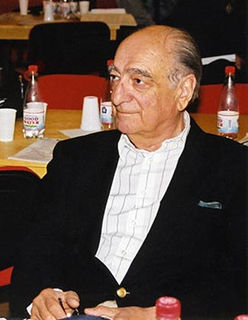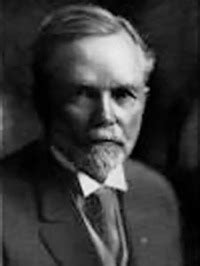A Quote by Russell L. Ackoff
Traditional education focuses on teaching, not learning. It incorrectly assumes that for every ounce of teaching there is an ounce of learning by those who are taught. However, most of what we learn before, during, and after attending schools is learned without its being taught to us. A child learns such fundamental things as how to walk, talk, eat, dress, and so on without being taught these things. Adults learn most of what they use at work or at leisure while at work or leisure. Most of what is taught in classroom settings is forgotten, and much or what is remembered is irrelevant.
Quote Topics
Adults
After
Attending
Before
Being
Child
Classroom
Dress
Eat
Education
Every
Forgotten
Fundamental
How
However
Irrelevant
Learn
Learned
Learning
Learns
Leisure
Most
Much
Ounce
Remembered
Schools
Settings
Talk
Taught
Teaching
Things
Those
Traditional
Traditional Education
Us
Use
Walk
While
Without
Work
Related Quotes
David Langford, illustrates the difference between teaching and
learning in a little story. He says, 'You know, last Wednesday I
taught my dog to whistle. I really did. I taught him to whistle. It
was hard work. I really went at it very hard. But I taught him to
whistle. Of course, he didn't learn, but I taught.'
Learning to read and write makes little sense if you don't understand what you're reading and writing about. While we may have forgotten, most of our early learning came not from being explicitly taught but from experiencing. Kids aren't born knowing hard and soft, sweet and sour, red and green. When the child experiences those things, s/he transforms them into psychological understandings. When kids play with other kids, they learn about others and about themselves. Learning the basics of our physical and social reality is what early childhood is all about.
I believe that our society's "mistake-phobia" is crippling, a problem that begins in most elementary schools, where we learn to learn what we are taught rather than to form our own goals and to figure out how to achieve them. We are fed with facts and tested and those who make the fewest mistakes are considered to be the smart ones, so we learn that it is embarrassing to not know and to make mistakes. Our education system spends virtually no time on how to learn from mistakes, yet this is critical to real learning.
From a very young age, my parents taught me the most important lesson of my whole life: They taught me how to listen. They taught me how to listen to everybody before I made up my own mind. When you listen, you learn. You absorb like a sponge - and your life becomes so much better than when you are just trying to be listened to all the time.
I was brought up by a Victorian Grandmother. We were taught to work jolly hard. We were taught to prove yourself; we were taught self reliance; we were taught to live within our income. You were taught that cleanliness is next to Godliness. You were taught self respect. You were taught always to give a hand to your neighbour. You were taught tremendous pride in your country. All of these things are Victorian values. They are also perennial values. You don't hear so much about these things these days, but they were good values and they led to tremendous improvements in the standard of living.
The barrier during self-improvement is not so much that we hate learning, rather we hate being taught. To learn entails that the knowledge was achieved on one's own accord-it feels great-but to be taught often leaves a feeling of inferiority. Thus it takes a bit of determination and a lot of humility in order for one to fully develop.
Most brain scientists have not taught 4th grade, and don't know very much about the classroom, even though they might study learning in some detail. Most education professionals, who often know a tremendous amount about the classroom, don't know much about the brain. That is one of the reasons why I am so skeptical about applying brain findings to the classroom.

































